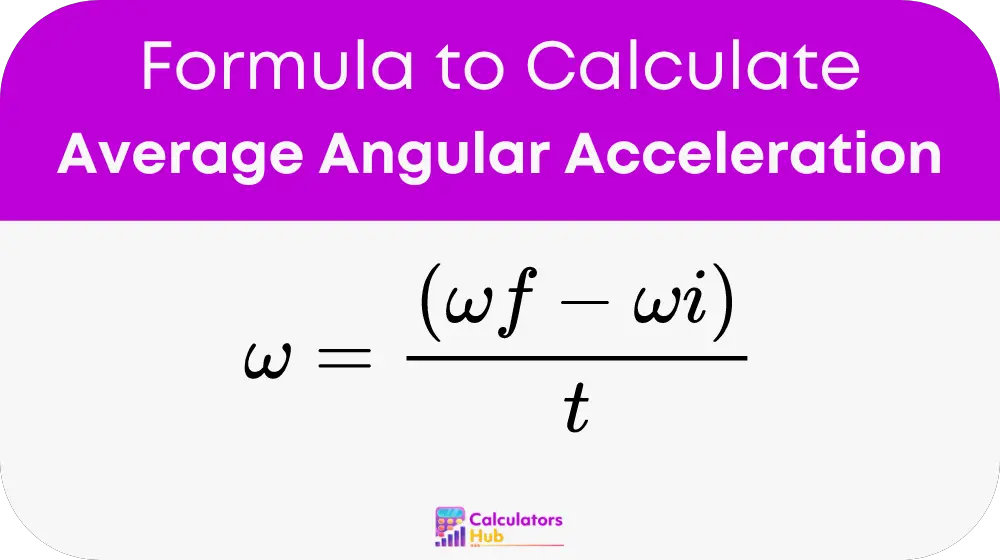The Average Angular Acceleration Calculator is a handy tool designed to compute the average angular acceleration of an object or system. But what exactly is angular acceleration? Simply put, it measures how quickly the angular velocity of an object changes over a given period. Angular velocity refers to the rate of change of angular displacement with respect to time. Now, let’s break down the formula used by this calculator.
Formula of Average Angular Acceleration Calculator
The formula for average angular acceleration is straightforward:

Where:
- ωf represents the final angular velocity
- ωi represents the initial angular velocity
- t represents the time interval in seconds
In essence, this formula calculates the change in angular velocity over time, providing us with a measure of how rapidly the rotational speed of an object is increasing or decreasing.
General Terms Table
Before we dive deeper, it’s helpful to understand some common terms used in angular acceleration calculations. Here’s a table summarizing these terms:
| Term | Definition |
|---|---|
| Angular Velocity | Rate of change of angular displacement over time |
| Angular Acceleration | Rate of change of angular velocity over time |
| Time Interval (t) | Duration over which the change in velocity occurs |
Understanding these terms is essential for using the calculator effectively and interpreting the results accurately.
Example of Average Angular Acceleration Calculator
Let’s walk through an example to illustrate how the Average Angular Acceleration Calculator works in practice:
Example:
- Initial angular velocity (ωi) = 10 radians/second
- Final angular velocity (ωf) = 30 radians/second
- Time interval (t) = 5 seconds
Using the formula, we can calculate the average angular acceleration:
Average Angular Acceleration = (30 – 10) / 5
= 20 / 5
= 4 radians/second²
So, in this example, the average angular acceleration is 4 radians/second².
Frequently Asked Questions (FAQs)
Angular acceleration is the rate of change of angular velocity over time. It indicates how quickly the rotational speed of an object is increasing or decreasing.
The average angular acceleration is calculated using the formula: Average Angular Acceleration = (ωf – ωi) / t, where ωf is the final angular velocity, ωi is the initial angular velocity, and t is the time interval.
The units of angular acceleration are radians per second squared (rad/s²).